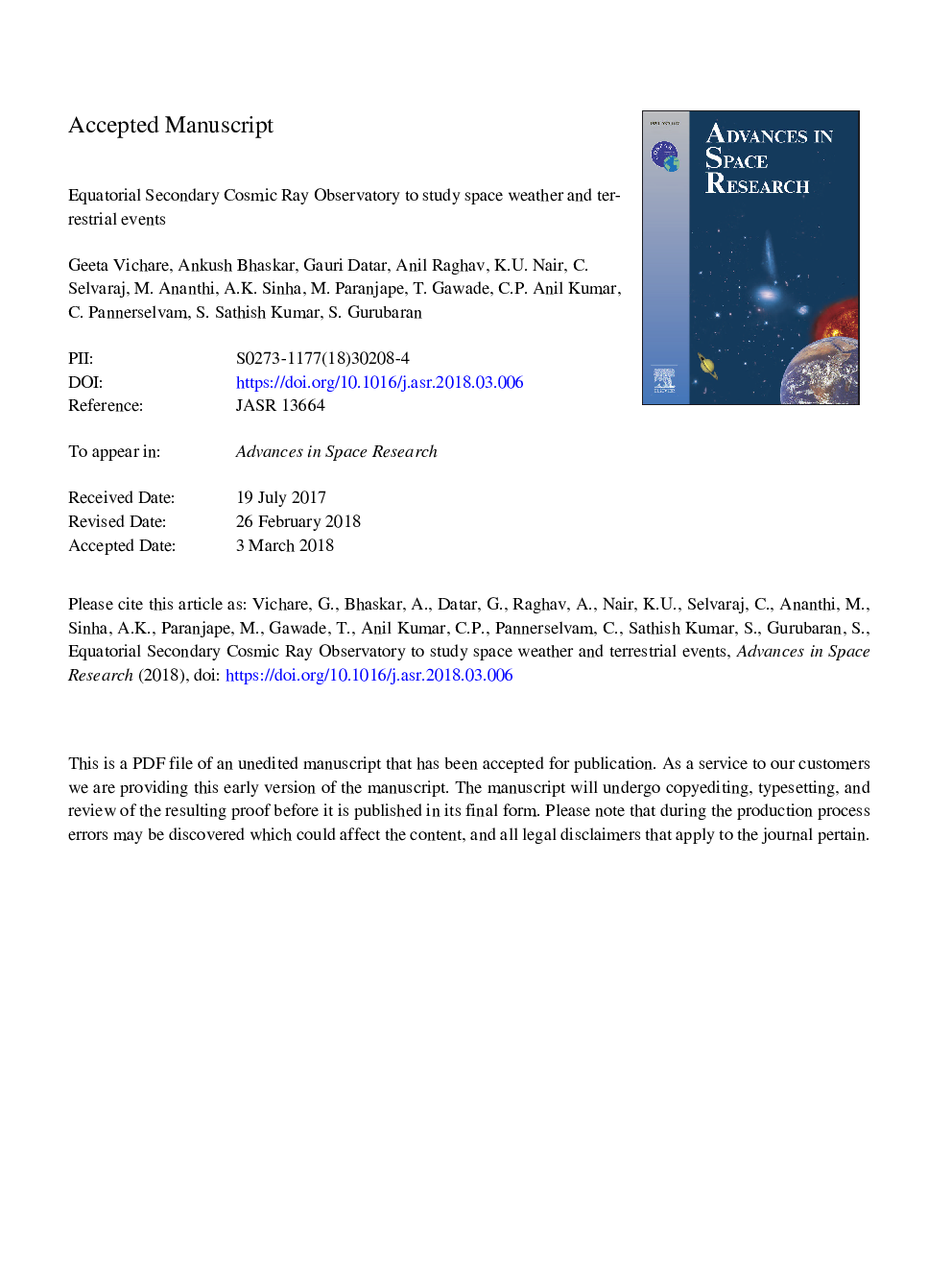| Article ID | Journal | Published Year | Pages | File Type |
|---|---|---|---|---|
| 8131932 | Advances in Space Research | 2018 | 41 Pages |
Abstract
For gamma-ray spectroscopy, it is important to test the performance of the NaI(Tl) scintillation detectors and to calibrate the gamma-ray spectrum in terms of energy. The present article describes the details of the experimental setup installed near the equator to study cosmic rays, along with the performance testing and calibration of the detectors under various conditions. A systematic shift in the gain is observed with varying temperature of the detector system. It is found that the detector's response to the variations in the temperature is not just linear or non-linear type, but it depends on the history of the variation, indicating temperature hysteresis effects on NaI detector and PMT system. This signifies the importance of isothermal environment while studying SCR flux using NaI(Tl) detectors, especially for the experiments conducted during daytime such as solar eclipses etc.
Related Topics
Physical Sciences and Engineering
Earth and Planetary Sciences
Space and Planetary Science
Authors
Geeta Vichare, Ankush Bhaskar, Gauri Datar, Anil Raghav, K.U. Nair, C. Selvaraj, M. Ananthi, A.K. Sinha, M. Paranjape, T. Gawade, C.P. Anil Kumar, C. Panneerselvam, S. Sathishkumar, S. Gurubaran,
